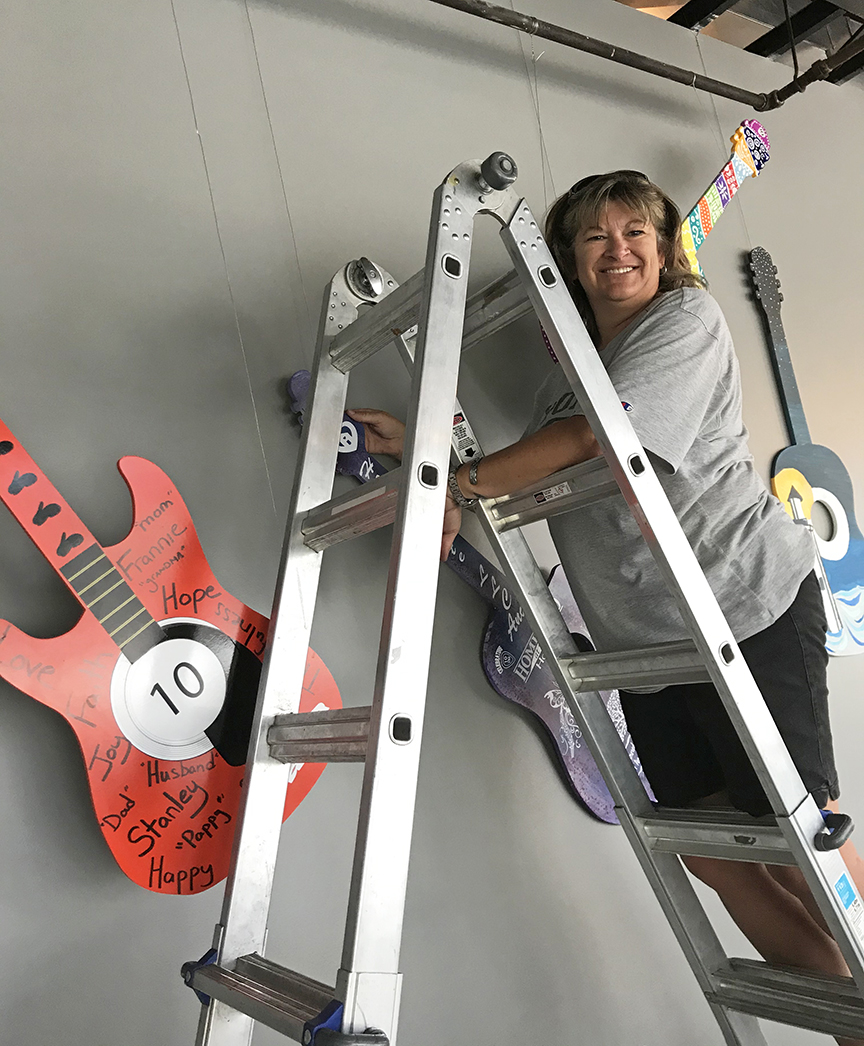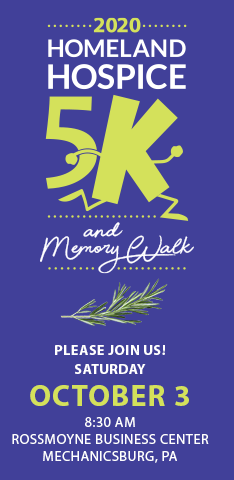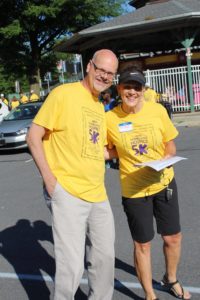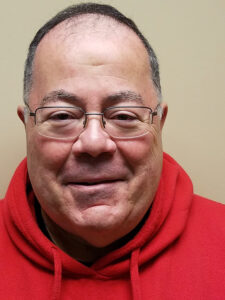test
By Barbara Goll, Community Liaison Educator and Nutritionist
 Loneliness affects more than 42 million older Americans according to the American Psychological Association. While living alone does not inevitably lead to loneliness, it can be a contributing factor. Social contact typically decreases with age due to retirement, spouse and friends dying or moving away, lack of mobility and physical limitations. When an entire peer group is experiencing these naturally occurring changes it is easy to see why there is a decline in the number and quality of relationships as we age.
Loneliness affects more than 42 million older Americans according to the American Psychological Association. While living alone does not inevitably lead to loneliness, it can be a contributing factor. Social contact typically decreases with age due to retirement, spouse and friends dying or moving away, lack of mobility and physical limitations. When an entire peer group is experiencing these naturally occurring changes it is easy to see why there is a decline in the number and quality of relationships as we age.
Loneliness is a very personal experience.
Loneliness comes with different causes and implications for every individual. This makes addressing the problem complex. Loneliness is a negative emotion defined by the quality and quantity of relationships that we have versus those we long to have. It is based on an individual’s values, needs, wishes and feelings. Loneliness can create a persistent loop of negative thoughts and feelings that can wear us down and push others away. “Loneliness is tricky because someone has to tell you their negative emotions,” says Kerstin Gerst Emerson from the Institute of Gerontology. “Diagnosis depends on asking questions, not a blood test or MRI.” It is a subjective feeling of social separation. When one does not feel they have value, self-worth or a purpose to their lives, it can lead to loneliness and depression. Loneliness can be defining and devastating to the lives of the elderly.
I realized the devastation of loneliness when my mother made a comment after a holiday family gathering stating that she felt alone and not a part of conversations. She also felt that what she might have to say was not important and that the conversations she had with others were just small talk. At the nursing home where I worked, I saw the pain on residents faces as they told me how lonely they were feeling, even though they were participating in a group activity at the time. Loneliness is personal and these feelings are all valid.
Loneliness has a harmful impact on mental and physical health.
When loneliness becomes a lifestyle, research shows it can cause depression, risk of heart disease, high blood pressure, Type 2 diabetes, weakened immune system, anxiety and dementia. These are not issues to be ignored. The Center for Cognitive and Social Neuroscience suggests that the connections with loneliness and health risks lie in harmful lifestyle choices such as eating poorly, inactivity and smoking.
What can be done to combat loneliness in seniors?
As family, caregivers and community members we can help our seniors become less lonely, more engaged. Here are some helpful suggestions:
- Encourage seniors to express themselves while being a good listener. Ask them to tell you more about past interests and activities. Try to rekindle and adapt past interests and hobbies to fit their current abilities.
- Use information learned from inquiring conversations to create an individual plan to decrease loneliness. Be creative with ideas, things offered in your community, clubs, and groups. Be prepared to nudge a little bit outside of their comfort zone.
- Foster relationships between generations through visits and technology such as email and Facetime or Skype. Help grandchildren learn wisdom, childhood stories and family history from grandparents. Have them show grandparents how to use their cell phone or computer more easily or help them correspond with friends and distant family.
- Visit as often as possible and engage in meaningful conversation. Give your full attention and really listen and hear what they have to say. Take a walk, read, sing or listen to favorite songs or play a board game. If unable to visit often you can write, call or use technology.
- Seek out and attend activities of interest with the senior, especially for the first few times. Local senior centers and Area Agency on Aging are a good place to start.
- Let seniors teach you something. When a former art professor moved into the nursing home where I was working, I empowered him to teach a basic sketch class to the residents. This brought worth and value to his life as well as the other residents lives who learned how to draw. Older individuals love to pass on knowledge.
- Take seniors out to restaurants, Sunday church service, a movie, to visit with a friend, shopping or a drive around the neighborhood or out into the country. Fresh air and a change of scenery can do wonders.
- Help facilitate connections with old friends that may not be able to visit anymore through letters, in-person visits, or emails.
- Encourage seniors to volunteer. Volunteering can be very rewarding and seniors have a lot of skills and wisdom to contribute to their community. This is a great social connection and adds purpose, worth and fulfillment to their lives. Volunteer search sites include: volunteermatch.org, rsvpcapreg.org and createthegood.aarp.org
- Take a class such as exercise, computer or other educational topic of interest. Many community colleges offer free lifetime learning classes for seniors. It is a great way to create new connections.
- Community planners and local authorities must take action and create policy that places emphasis on healthy aging. Allow communities to support our older adults and the aging process as well as those living with dementia. Dementia Friendly America and Age Friendly Cities are initiatives that focus on communities working together to support our older Americans.
Reducing loneliness in all generations is derived from strong and loving relationships we have with others. Let’s try to help our seniors create and preserve these relationships throughout their lives and show them how valuable they truly are.
Barbara Goll is a Community Education Liaison and Nutritionist for Homeland at Home. Her passion is educating and helping people attain a higher quality of life while aging in place. Goll is a valued member of Homeland’s community outreach team offering a variety of short talks on nutrition and age-related issues, including her “My Reflections” workshop to help you to think through many end-of-life care decisions. She has presented at 50 Plus Expo’s, civic organizations, community support groups, senior centers, aging forums and more. Homeland at Home offers Hospice, HomeHealth and HomeCare.
 After a temporary pause due to the COVID-19 pandemic, Homeland Hospice is excited to announce its “Guitars … with Gratitude … 2020 Tour” is back on the road. Guitars are currently on display at Café 1500 in Harrisburg and Desperate Times Brewery in Carlisle.
After a temporary pause due to the COVID-19 pandemic, Homeland Hospice is excited to announce its “Guitars … with Gratitude … 2020 Tour” is back on the road. Guitars are currently on display at Café 1500 in Harrisburg and Desperate Times Brewery in Carlisle. Patrons visiting Desperate Times Brewery can admire Judy Dooley’s butterfly-themed guitar created in honor of her mother Rose, who died more than two years ago. In her end of life journey, Rose received in-home care support including massage and music therapy, and spiritual counseling from Homeland Hospice. The Homeland team also helped Judy as a caregiver and grieving daughter.
Patrons visiting Desperate Times Brewery can admire Judy Dooley’s butterfly-themed guitar created in honor of her mother Rose, who died more than two years ago. In her end of life journey, Rose received in-home care support including massage and music therapy, and spiritual counseling from Homeland Hospice. The Homeland team also helped Judy as a caregiver and grieving daughter. “I knew the designs would be good,” says Ed Savage, Assistant Director of Development for Homeland Center. ”But I was blown away by the creativity. The guitars are outstanding.”
“I knew the designs would be good,” says Ed Savage, Assistant Director of Development for Homeland Center. ”But I was blown away by the creativity. The guitars are outstanding.”

 The Memory Walk was the brainchild of Brian Medkeff-Rose, Homeland Hospice Bereavement Counselor, to focus on “remembrance” and to use the herb rosemary as the thread. Rosemary is symbolic for remembrance. It comes from Latin meaning “dew of the sea,” because it grows along the rocky coast of the Mediterranean. William Shakespeare references rosemary in several of his plays including Hamlet. Hamlet’s love interest, Ophelia says, “There’s rosemary, that’s for remembrance, pray for love, remember.”
The Memory Walk was the brainchild of Brian Medkeff-Rose, Homeland Hospice Bereavement Counselor, to focus on “remembrance” and to use the herb rosemary as the thread. Rosemary is symbolic for remembrance. It comes from Latin meaning “dew of the sea,” because it grows along the rocky coast of the Mediterranean. William Shakespeare references rosemary in several of his plays including Hamlet. Hamlet’s love interest, Ophelia says, “There’s rosemary, that’s for remembrance, pray for love, remember.” What made this event meaningful?
What made this event meaningful? Loneliness affects more than 42 million older Americans according to the American Psychological Association. While living alone does not inevitably lead to loneliness, it can be a contributing factor. Social contact typically decreases with age due to retirement, spouse and friends dying or moving away, lack of mobility and physical limitations. When an entire peer group is experiencing these naturally occurring changes it is easy to see why there is a decline in the number and quality of relationships as we age.
Loneliness affects more than 42 million older Americans according to the American Psychological Association. While living alone does not inevitably lead to loneliness, it can be a contributing factor. Social contact typically decreases with age due to retirement, spouse and friends dying or moving away, lack of mobility and physical limitations. When an entire peer group is experiencing these naturally occurring changes it is easy to see why there is a decline in the number and quality of relationships as we age. My father-in-law died three years ago in June. The final weeks leading up to his passing were particularly challenging in terms of providing for his needs. Thankfully, my wife and I were able to find and engage the services of an area hospice. I came away with a deep appreciation of the passion and commitment that it takes to work for a hospice – not only as a paid caregiver, i.e., nurse, social worker, but also as a volunteer. It was through that experience that I was lead to become a hospice volunteer.
My father-in-law died three years ago in June. The final weeks leading up to his passing were particularly challenging in terms of providing for his needs. Thankfully, my wife and I were able to find and engage the services of an area hospice. I came away with a deep appreciation of the passion and commitment that it takes to work for a hospice – not only as a paid caregiver, i.e., nurse, social worker, but also as a volunteer. It was through that experience that I was lead to become a hospice volunteer.
